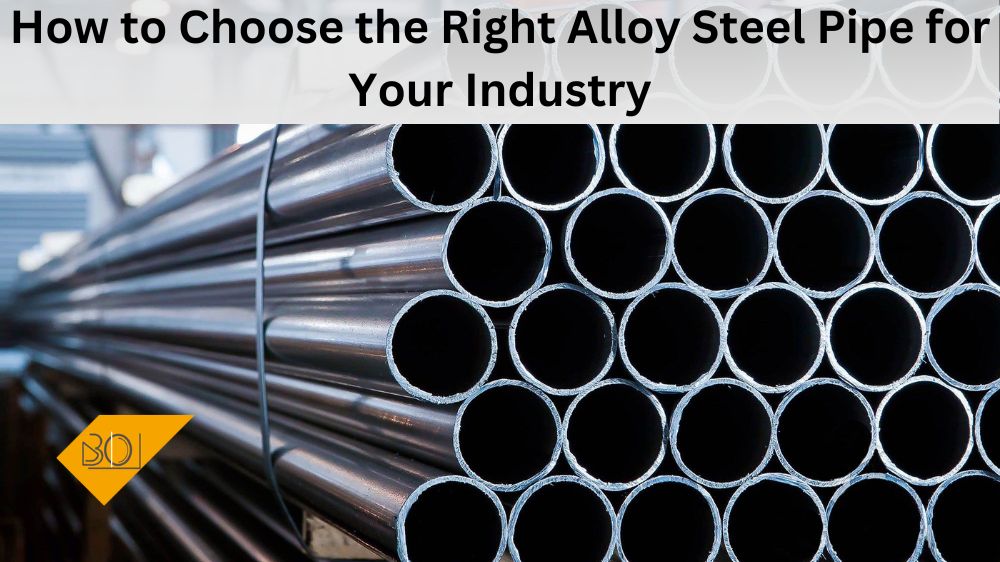Choosing the right alloy steel pipe for your industry depends on many factors, including what type of application it will be used for, its mechanical properties and its chemical composition. Factors to consider include whether you require good weldability or higher corrosion resistance, the temperature range within which it will function, strength/hardness requirements, and its intended service life. It is also important to factor in possible adjustments that may need to be made – such as joining processes needed in welding or bending applications. Ultimately assessing all these variables can help ensure you select an alloy steel pipe that serves your specific needs best.
What is an Alloy Steel Pipe?
Alloy steel pipe is a type of pipe made from alloyed iron, carbon and other elements. It is stronger and has greater corrosion resistance than ordinary carbon steel pipes. Depending on the content of various alloying elements such as vanadium, molybdenum, manganese, chromium or nickel, these pipes can offer different mechanical properties for various industrial purposes. They are ideal for petrochemical plants, refineries, power plants and other industries requiring more robust materials than regular carbon steel pipe. In addition to their increased strength and resistance to corrosion, alloy steel pipes also offer good flexibility and weldability properties, making them highly sought after in many industrial settings.
Consider the purpose of the Alloy Steel Pipe
Alloy Steel Pipes are essential to many industrial processes due to their strength, durability, and temperature resistance. Generally, they are used when projects involve high pressure or elevated temperatures because the alloy elements present in these pipes can be altered to enhance specific properties like increased corrosion protection or improved strength. They are also used for erosion and wear protection while transporting fluids or gases at high speed. The performance of any application directly depends on the choice of alloy steel pipe being used. It is, therefore, important to consider the purpose for which you intend to use your alloy steel pipe before making a purchase decision.
Diameter and Wall thickness
When choosing the alloy steel pipe required for your industry, you must consider the diameter and wall thickness. The diameter of the pipe will determine the volume of the substance that will flow through it. A larger diameter pipe is suitable for high-volume applications. The wall thickness of the pipe determines the maximum pressure it can handle. A thicker pipe can withstand high pressure, whereas a thinner one cannot.
Material Composition
The alloy steel pipe’s material composition determines its suitability for the industry. The most common alloys are steel, aluminum, nickel, copper, and titanium. Each alloy has its unique properties and is ideal for a particular application. For instance, stainless steel pipes are perfect for industries that need a high level of corrosion resistance, while carbon steel pipes are ideal for applications that require enhanced strength.
Working Environment
The alloy steel pipes’ environment will also affect your choice. Some complex chemical processes, high temperatures or pressure, and exposure to moisture or corrosive substances can cause damage to the pipes. Therefore, understanding the working environment will help you choose the most appropriate alloy steel pipe suited for your industry.
Quality Assurance
Finally, quality assurance is essential when choosing an alloy steel pipe. Ensure the supplier or manufacturer is certified, and the pipe adheres to international standards. Failure to consider quality may result in a pipe that does not meet the industry’s specifications and may cause significant damage to your business.
Conclusion:
In conclusion, choosing the right alloy steel pipe for your industry requires critical thinking. Consider the purpose of the pipe, the diameter, wall thickness, material composition, working environment, and quality assurance. Working with a reputable supplier that can guide the selection process is essential. Remember that your business’s success relies heavily on the correct selection of alloy steel pipes.

